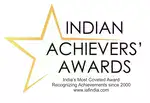Unstructured Interviews: Is It a Good Choice for Qualitative Data Collection?
Choosing the right qualitative data collection method is crucial for gathering rich and insightful information. Unstructured interviews happen to be one such descriptive qualitative research method that offers flexibility and depth in understanding participants' perspectives. In today’s blog, we'll explore the benefits of unstructured interviews as a qualitative data research method, compare them with structured and semi-structured interviews and discuss real-world scenarios where they can be effectively used. Let’s get started!
What Are Unstructured Interviews?
Unstructured interviews are one of the common qualitative data collection methods. In this particular methodology, open-ended conversations are conducted between the researcher and participant(s) where the discussion flows freely without a predetermined set of questions or a rigid interview protocol. Unlike structured interviews that follow a fixed format with standardized questions, unstructured interviews allow for spontaneous exploration of topics, encouraging participants to express their thoughts, feelings, and experiences in their own words. The open-ended approach involved in these interviews fosters rich, in-depth discussions and enables researchers to uncover unexpected insights and nuances.
Structured vs. Semi-Structured vs. Unstructured Interviews: A Detailed Comparison
Each type of interview—structured, semi-structured, and unstructured—offers distinct advantages and is suited to different research contexts. Let's explore the key differences between these interview formats:
Unstructured Interviews
Format: As discussed, unstructured interviews involve open-ended conversations between the researcher and participant(s), with no predetermined set of questions or interview protocol.
Flexibility: Participants have the freedom to express themselves freely, leading the conversation in whichever direction they choose.
Purpose: Unstructured interviews are designed to explore topics in depth, allowing for rich, nuanced discussions and the discovery of unexpected insights.
Structured Interviews
Format: Structured interviews follow a predetermined set of questions asked in a standardized format.
Control: Researchers have full control over the interview process, ensuring consistency in the questions asked and the order in which they are presented.
Purpose: Structured interviews are ideal for collecting quantitative data or when researchers aim to compare responses across participants systematically.
Semi-Structured Interviews
Format: Semi-structured interviews include a set of core questions supplemented by follow-up probes or prompts to explore topics in more depth.
Flexibility: Researchers have some flexibility to adapt the interview based on participants' responses, allowing for spontaneous exploration of emerging themes.
Purpose: Semi-structured interviews strike a balance between structure and flexibility, making them suitable for capturing nuanced insights while still maintaining some level of consistency across interviews.
Choosing the Right Interview Format
There is no one-size-fits-all approach to choosing the right interview format. The interview format of your choice should ensure that your research objectives are met and that you gather high-quality data. Here are some considerations to help you select the most appropriate interview format:
- Research Goals: Clarify the specific goals of your study. Are you seeking to explore participants' experiences and perspectives in depth? Do you need standardized data for quantitative analysis? Understanding your research objectives will guide your choice of interview format.
- Nature of the Research Topic: Consider the nature of your research topic and the type of data you need to collect. Some topics may lend themselves well to open-ended exploration and in-depth discussion, while others may require a more structured approach to ensure consistency and comparability of responses.
- Characteristics of Participants: Take into account the characteristics of your participants, including their familiarity with the topic, their comfort level with sharing personal information, and their communication preferences. Choose an interview format that is appropriate and respectful of participants' needs and preferences.
- Level of Flexibility Desired: Evaluate how much flexibility you need in the interview process. Structured interviews offer little flexibility, as they follow a predetermined set of questions, while unstructured interviews allow for maximum flexibility, with no predetermined questions or structure. Semi-structured interviews strike a balance between structure and flexibility, offering a set of core questions supplemented by probes or prompts to explore topics in more depth.
- Resources and Constraints: Consider practical factors such as time, budget, and available resources. Structured interviews may be more efficient for large-scale studies with many participants, while unstructured interviews may require more time and resources for data collection and analysis.
- Researcher Skills and Experience: Reflect on your own skills and experience as an interviewer. Choose an interview format that aligns with your strengths. Are you comfortable conducting open-ended interviews and facilitating in-depth discussions? Do you have the necessary training and expertise to navigate unstructured or semi-structured interviews effectively? If not, don’t hesitate to outsource your survey requirements to an experienced market research agency.
Advantages of Unstructured Interviews
Unstructured interviews offer several distinct advantages for qualitative data collection and research:
Rich, In-depth Data
Unstructured interviews allow for open-ended conversations between the researcher and participants, fostering rich, detailed responses that provide a deep dive into participants' experiences, perspectives, and beliefs. Unstructured interviews encourage participants to express themselves freely and spontaneously. The aim here is to capture the complexity and nuances of their thoughts and emotions.
Flexibility
Unlike structured interviews, which follow a predetermined set of questions, unstructured interviews offer maximum flexibility in the interview process. Researchers can adapt the conversation in real-time based on participants' responses, exploring emergent themes and following interesting lines of inquiry as they arise. This level of flexibility allows for a more organic and dynamic exchange between the researcher and participants.
Participant Engagement
Unstructured interviews often lead to greater participant engagement and involvement in the research process. Participants feel empowered to share their stories and perspectives in their own words, contributing to a sense of ownership over the research and fostering a deeper connection between the researcher and participants.
Discovery of New Findings
One of the key advantages of unstructured interviews is their capacity to uncover unexpected perspectives that may not have been anticipated beforehand. By allowing the conversation to flow freely, researchers can uncover new themes, connections, and patterns in the data, thus enriching the research findings and contributing to a more nuanced understanding of the research topic.
Holistic Understanding
Unstructured interviews facilitate a holistic understanding of participants' experiences and contexts. Exploring topics in depth and allowing participants to share their stories in their own words allows a qualitative research agency to gain a comprehensive view of the factors shaping participants' perspectives and behaviors. This holistic understanding enables researchers to develop more nuanced interpretations and insights from the data.
Empowerment of Participants
Unstructured interviews empower participants to share their lived experiences and perspectives, validating their voices and contributions to the research process. Unstructured interviews help create a supportive and nonjudgmental environment for dialogue, encouraging participants to express themselves authentically, fostering a sense of trust and rapport between the researcher and participants.
Real-World Scenarios Where Unstructured Interviews can be used
Unstructured interviews are a valuable qualitative research method that can be applied in a wide range of real-world scenarios, some of which are listed below:
- Exploratory Research: Unstructured interviews are particularly well-suited for exploratory research aimed at understanding new or understudied topics. Researchers can use unstructured interviews to gather preliminary insights, explore diverse viewpoints, and identify key themes or areas of interest for further investigation.
- Qualitative Studies: In qualitative research, unstructured interviews are commonly used to explore complex phenomena in depth. Researchers may use unstructured interviews to delve into participants' lived experiences, perceptions, beliefs, and attitudes, allowing for a comprehensive understanding of the topic under study.
- Case Studies: Unstructured interviews can be valuable in case study research, where researchers seek to understand the intricacies of specific cases or contexts in detail. By conducting unstructured interviews with key stakeholders or participants involved in the case, researchers can gather rich, contextualized data that illuminates the complexities of the situation.
- Ethnographic Studies: Ethnographic research often involves immersion in a particular culture or community to understand its norms, practices, and social dynamics. Unstructured interviews can complement other ethnographic methods by providing insights into participants' perspectives, values, and experiences within the cultural context.
- Clinical Research: In clinical settings, unstructured interviews can be used to explore patients' experiences, perceptions of illness, treatment preferences, and healthcare needs. Researchers may conduct unstructured interviews with patients, caregivers, or healthcare providers to gain insights that inform patient-centered care and improve healthcare delivery.
- Program Evaluation: Unstructured interviews can be valuable for evaluating the effectiveness of programs or interventions. By conducting unstructured interviews with program participants, staff, or stakeholders, researchers can gather qualitative feedback on program implementation, outcomes, and areas for improvement.
- Market Research: In market research, unstructured interviews can be used to gain insights into consumer preferences, behaviors, and motivations. Researchers may conduct unstructured interviews with target customers to explore their purchasing decisions, product perceptions, and brand experiences.
- Organizational Research: Unstructured interviews can be employed in organizational research to explore employees' experiences, perceptions of organizational culture, leadership styles, and workplace dynamics. Researchers may conduct unstructured interviews with employees at different levels of the organization to understand their perspectives and experiences.
Final Word
Unstructured interviews are a powerful tool for qualitative data collection, offering unparalleled flexibility, depth, and richness in understanding participants' perspectives. While they may require more time and effort to analyze compared to structured or semi-structured interviews, the insights gained from unstructured interviews can be invaluable for gaining a comprehensive understanding of complex phenomena and uncovering new avenues for research. Researchers should, however, be careful when planning to conduct unstructured interviews. Even a single wrong step can potentially tamper the authenticity of the data collected. In case you are unsure of where to start, hiring global market research firms can do the trick for you. When looking for a reputable qualitative research agency adept at conducting different types of qualitative research methods, your search ends here at Unimrkt Research. We are one of the top qualitative research companies, offering market research services in over 22 languages. We are also ISO20252 and ISO 27001 certified. To learn more about how we can assist you, call us at +91-124-424-5210 or drop an email at sales@unimrkt.com. You may also fill out our contact form, and we will get back to you shortly.
Quick Enquiry
Customer Service, We Make it Better
Recent Posts
- How to Clarify and Align Your Research Goals for Maximum Impact
- Mining Valuable Data: The Driving Force for an Effective Growth Marketing Strategy
- Speaking the Customers Language: 7 Tips for Meaningful Qualitative Research
- Creating Value for Investors: The Benefits of Primary Market Research
- Utilizing Closed-Ended Questions For Quantitative Market Research
- Capturing the Changing Interests of Millennials Through Qualitative Research
- Refining Unit Economics with Robust Quantitative Market Research
- A Concise Guide to Quantitative Market Research
- 3 B2B Market Research Trends That Could Shape 2024
- Eyes on 2024: Changes That Might Disrupt the Healthcare Industry This Year
- Cracking the Language to Make Survey Questions Inclusive in 2024
- Attracting Investors: How Market Research Can Solidify Your Case
- Solid Foundations: Ways to Enhance Trustworthiness in Qualitative Research
- What Makes CATI Research So Effective?
- Moderator Qualities That Improve Qualitative Market Research
- 5 Consumer Market Trends That Will Define 2024
- What are the strengths of quantitative research?
- How to Make Your Partnership with Primary Market Research Firms Fruitful
- A Quick Guide to Harnessing the Strengths of Quantitative Research
- Advice from Your Research Partner: Don't Compromise Quality on Online Surveys













